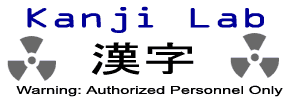
Departments

TE or SHU?
手
This is the kanji which means “hand.” You will meet this kanji in many contexts—both figurative and literal. This is not a difficult kanji to memorize; even beginners can learn to write it fairly quickly. However, when you see 手in a compound word, you may be unsure of whether to pronounce it with the on-yomi (SHU) or the kun-yomi (te). The split of on-yomi vs. kun-yomi compounds is about fifty-fifty. Therefore, you have to memorize the high-frequency examples.
Here is what I mean, starting with words that begin with手. What follows are two lists: first a list of words that begin with SHU, and then a list of words that begin with te:
SHU-beginning words:
手術 (しゅじゅつ)surgery
手芸 (しゅげい) handicraft
手動 (しゅどう) manual
手話 (しゅわ) sign language
手段 (しゅだん) means, method
手腕 (しゅわん) skill; ability
te-beginning words:
手間 (てま) time; labor; effort
手不足 (てぶそく) shorthanded
手形 (てがた)promissory note
手帳 (てちょう) pocket notebook
手袋 (てぶくろ) gloves
Similarly, words that end with 手 are about evenly split between the on-yomi and the kun-yomi:
SHU-ending words:
選手 (せんしゅ) athlete
歌手 (かしゅ) singer
騎手 (きしゅ) jockey
着手 (ちゃくしゅ) beginning; commencement
te-ending words:
大手企業 (おおて)major company; big company
熊手 (くまで) rake
相手 (あいて) partner; opponent
片手 (かたて) one hand; one-handed
There are also two irregular readings of 手, ta and zu. Listed below are the only words where you are likely to encounter these irregular readings:
手綱 (たづな) reins
下手(へた) bad at
上手(じょうず) good at